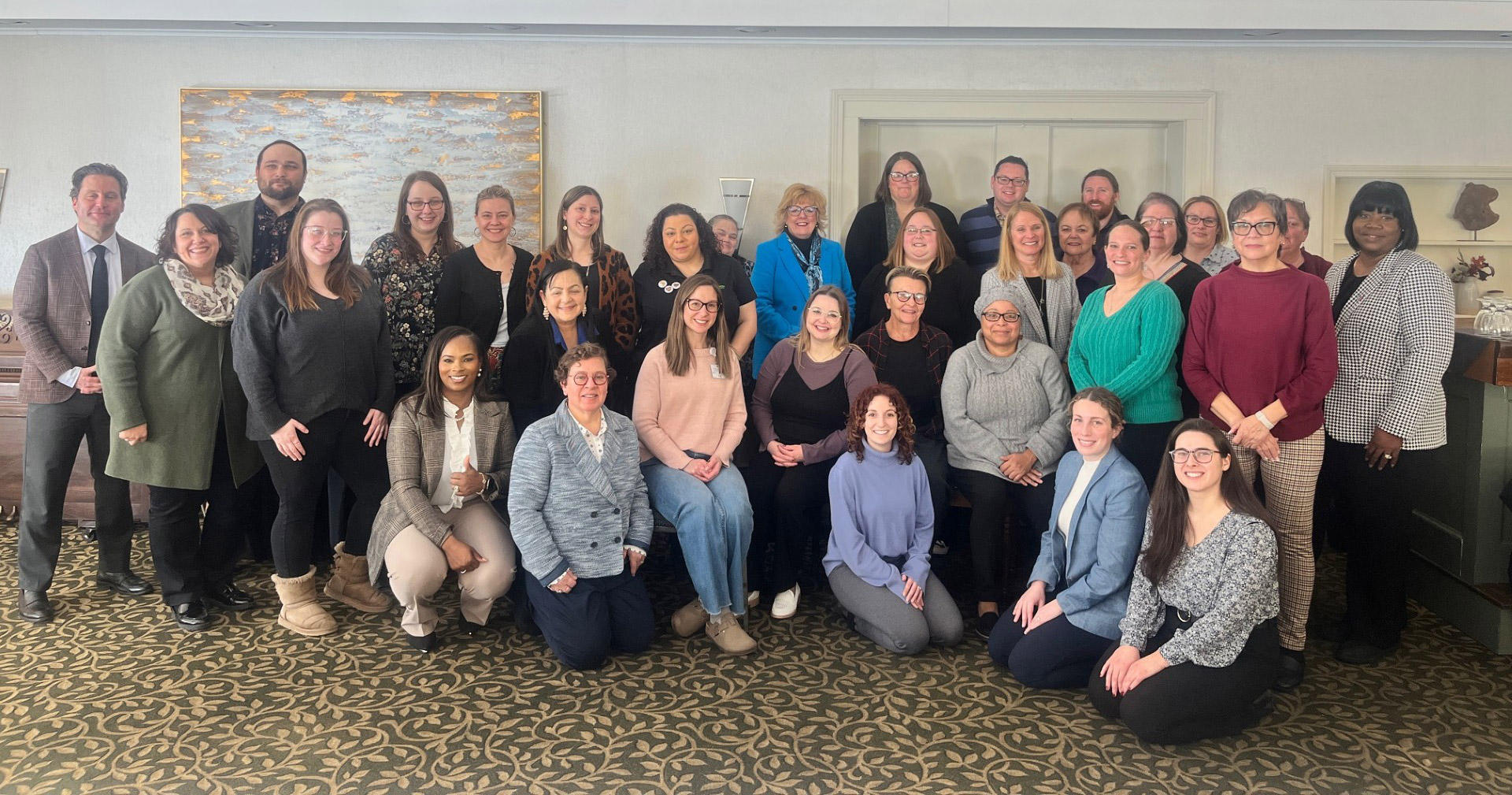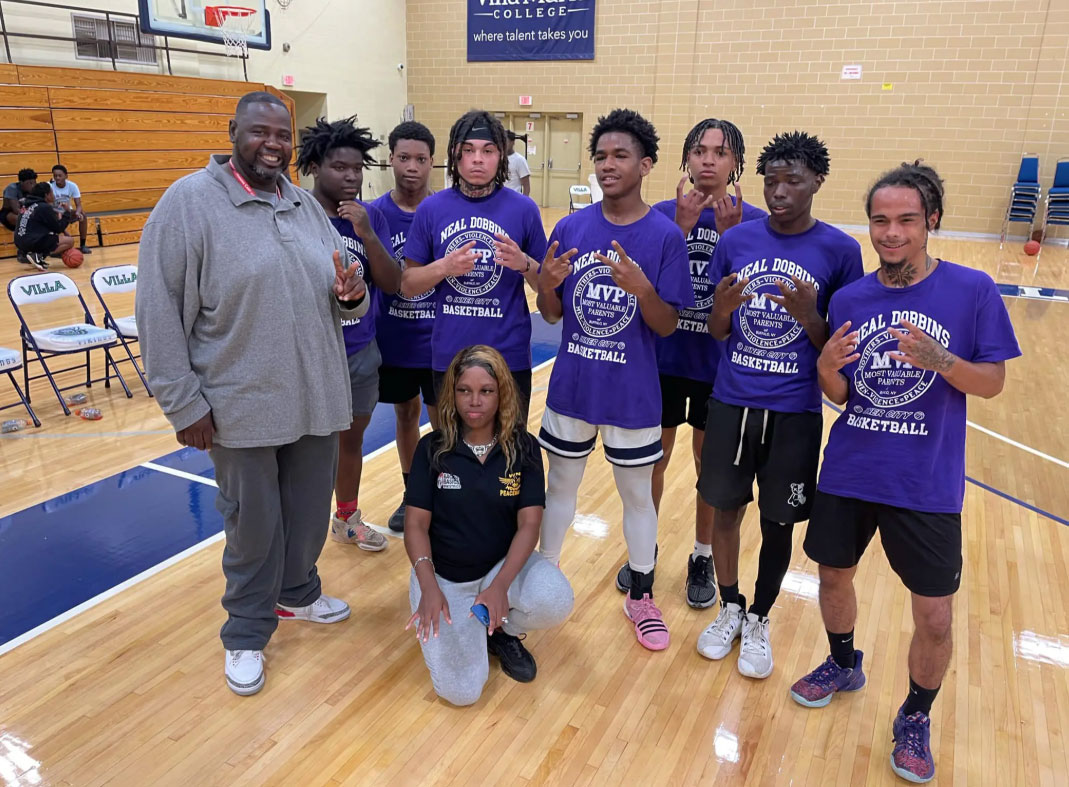2024 Annual Report
Creating Safe, Trauma-Informed Spaces to Care for Older Adults
Nearly all of us will experience trauma in our lifetimes, and the ripple effect from those experiences can last for years or decades. The care we receive from medical providers or community organizations is most effective when traumatic experiences are acknowledged and understood—a concept known as trauma-informed care.
Incorporating a trauma-informed lens in an organization requires serious commitment, time, and resources, and a new Health Foundation program is helping make that change happen.

Partnership and Proven Curriculum
The Older Adults Trauma-Informed Champions program evolved from a partnership with the University at Buffalo’s Institute on Trauma and Trauma-Informed Care (ITTIC) and the Jewish Federations of North Americas’ Center on Aging, Trauma, and Holocaust Survivor Care.
The program combines ITTIC’s Trauma-Informed Champion curriculum, designed to build organizational capacity and support learning through consultation and collaborative opportunities, with JFNA’s Person-Centered Trauma Informed (PCTI) practice. PCTI infuses knowledge and experience working with older adult trauma survivors into organizational practices, programs, policies, and procedures to promote the safety and well-being of older adults and their families.
The Older Adult Trauma-Informed Champion Program builds on these successful models to offer 12 western New York organizations focused on older adult care the chance to create a long-term, sustainable plan for incorporating trauma-informed principles in their work.
What is trauma-informed care?
Trauma-Informed Care (TIC) is an approach that shifts thinking from “what’s wrong with you?” to “what’s happened to you?” with an understanding of the pervasive nature of trauma.
Organizations and communities can become more trauma-informed by making specific service and administrative-level changes to be responsive to both the needs and strengths of those with a trauma history.
Why Trauma-Informed Care Is Important for Older Adults
The connection between trauma and overall health is well-documented. According to ITTIC, older adults with a history of trauma are more likely to experience cognitive functioning challenges or decline; Alzheimer’s disease and dementia; chronic health issues such as heart disease, diabetes, chronic pain, or autoimmune disorders; and greater emotional reactivity in response to daily health challenges.
Incorporating a comprehensive trauma-informed lens in a busy organization is no small feat. But it’s essential work, says participant Allison Ayers-Hendy, a licensed clinical social worker with the Cattaraugus County Office for the Aging (OFA). As of this report, the OFA was serving nearly 700 active cases for older adults and their caregivers in Cattaraugus County.
Meet the first Older Adult Trauma-Informed Champs
- Alzheimer’s Association – Upstate New York Chapters
- Buffalo Federation of Neighborhood Centers
- Catholic Health
- Cornell Cooperative Extension – Orleans County
- Center for Elder Law and Justice
- Cattaraugus County Office for the Aging
- The Dale Association
- Evergreen Health
- Hearts & Hands
- Hispanos Unidos de Buffalo
- Native American Community Services
- Orleans County Office for the Aging
“This kind of work has its place in any area, but especially with older adults,” says Allison. “A trauma-informed approach will give us a different perspective on the wide variety of experiences of the people we serve. There are so many areas where it will absolutely make a difference.” She notes that trauma-informed practice can be included in every aspect of an organization’s work, from supporting employees to interacting with the community.
Before the program kicked off in 2025, the Trauma-Informed Champions organizations participated in a foundational online course hosted by ITTIC and JFNA titled Person-Centered, Trauma-Informed Essentials for Aging Services (PCTI Essentials). Results from the course were notable:
- 96% of Champions noted that they are now confident in their ability to use the PCTI approach;
- 96% of Champions noted that they are now confident in their ability to support others in implementing the PCTI approach;
- and 65% of Champions noted that they are now confident in their ability to train others on the PCTI approach.
The learning collaborative helps participants understand how other organizations are approaching trauma-informed care.
“Being together is beneficial because we can hear real-world examples of how other leaders are applying this lens,” notes Amanda Nobrega, Vice President of Programs, Alzheimer’s Association – Upstate New York Chapters. “It’s not a one-size-fits-all—it’s going to be really helpful to see what’s working and what’s not working for others.”
Amanda hopes the program will help influence change beyond their local work. As a member of the national Alzheimer’s Association, she sees incorporating trauma-informed principles as something that can naturally be applied to much of the organization’s work.
“Many of our neighbors and loved ones have experienced trauma, whether through systemic inequities, the complexities of caregiving for someone with dementia, or both,” Amanda says. “Trauma-informed principles create a foundation of safety and trust, which aligns with what we do every day: supporting individuals and families through the challenges of dementia. By fostering a safe space, we help people heal and navigate their unique, complex journeys, empowering them to live their best possible lives with dementia.”




